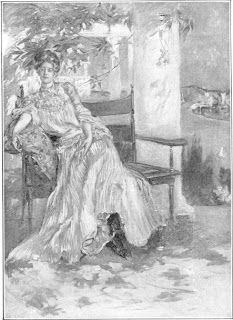what i read in october
 Not much, as it turns out. I blame shortened library hours. But I did reread Pinko by Jen Benka and wrote a longer review for Gently Read Literature (cyber-flip to page 11). I almost never reread books because there are so many I haven’t read even one time, but whenever I do, I’m reminded of what a worthwhile activity it is. New meanings emerge, structures become apparent, the text works its rhythms into your soul. I feel like real writers reread.
Not much, as it turns out. I blame shortened library hours. But I did reread Pinko by Jen Benka and wrote a longer review for Gently Read Literature (cyber-flip to page 11). I almost never reread books because there are so many I haven’t read even one time, but whenever I do, I’m reminded of what a worthwhile activity it is. New meanings emerge, structures become apparent, the text works its rhythms into your soul. I feel like real writers reread.If I were a real writer, I would probably be reading the classics below for the third time. But I also believe that real writers don’t waste time apologizing for their imperfect reading habits. The important thing is the voraciousness.
A River Runs Through It by Norman Maclean: I started this book on a trip to Montana (perfect, right?). Maclean sums up the spiritual effect of the landscape beautifully: "For all of us, mountains turn into images after a short time and the images turn true. Gold-tossed waves change into the purple backs of monsters, and so forth. Always something out of the moving deep, and nearly always oceanic. Never a lake, never a sky."
He talks about hiking--during his years in the Forest Service--to various rhythms, and clearly he has a musician's ear. Or maybe a preacher's, like his father. The language is one part cowboy wit, one part biblical. The content is a similar blend of adventure tale and philosophy, set in the rugged terrain of men and lovingly calling its bluff, which makes me see him as an odd sort of precursor to Dave Eggers. I also really enjoyed reading a somewhat contemporary older man's remembrances of his youth--I feel like that's the closest look I'll ever get at 1919, and it feels like a privilege.
The House of Mirth by Edith Wharton: This earlier novel of Edith Wharton's lacks the polish and maturity of The Age of Innocence; sometimes I felt like I was reading a trashy gossip rag. But I mostly mean that in a good way. The story of Lily Bart, a fun-loving upper class bachelorette who is inconveniently lacking cash, exposes the cruelty of class and gender discrimination as well as many tragic personal flaws (namely Lily's ability to adapt to any situation, which makes her unable to commit to any one kind of life). At an earlier point in my own life, I think I would have been more put off by Lily's snobbery and greed. Now it's hard not to relate to this woman who wants too much (though not more than many of her peers have), is punished for it, accidentally (spoiler alert) commits suicide while trying to manage her anxiety, and dies clutching an invisible baby. There but for the grace of Zoloft....



Comments